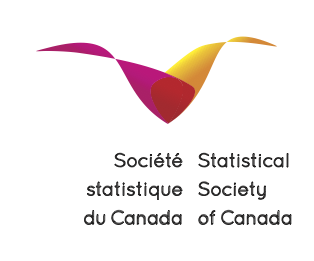Creation of a Data Science and Analytics Section/ Groupe science des données et analyses (DSAS/GSDA)
At the October board meeting, Shirley Mills (Carleton University) brought forward a proposal signed by 27 SSC members for the creation of a new SSC section on Data Science and Analytics (DSAS). Borrowing from Donoho’s “50 Years of Data Science” (2017) data science can be defined as the “coupling of scientific discovery and practice [involving] the collection, management, processing, analysis, visualization, and interpretation of vast amounts of heterogeneous data associated with a diverse array of scientific, translational, and interdisciplinary applications.” Naturally in the board meeting, representatives from other sections wondered about overlap—after all, data sciences and analytics are represented in the Biostatistics, Business and Industrial Statistics, and most other sections. In the past, there was even discussion about whether or not the SSC should change its name to something involving data science. In the board meeting, the feeling was that DSAS should indeed be a stand-alone section to highlight its wider utility. In passing the motion, the SSC expects that the DSAS will diversify and grow the interests of the Society while engaging a wider community. Specific section objectives from the passed motion are quoted at the end of this article.
To celebrate the creation of the section, DSAS will be hosting its inaugural workshop on analysis of unstructured text data at SSC 2020 meeting in which Dave Campbell (Carleton University) and Nathan Taback (University of Toronto) will be introducing participants to tools for collecting, managing, processing, analyzing, visualizing, and interpreting vast unstructured text data from a variety of sources.
Watch for more information about the DSAS section as it develops. Meanwhile when you are renewing your membership for 2020, join the SSC‘s newest section!
Specific section objectives
Quoting the proposal passed by the board at the October meeting, the DSAS objectives are to
- serve as the Society's focal point for data science and analytics;
- encourage the use of statistical science methods in all stages from data acquisition, storage, and cleaning, to finding value in acquired data, enabling evidence-based decisions, producing inference and predictions, and communicating and disseminating domain informed results;
- create forums for presentation and discussion of research in these fields;
- address emerging topics that will impact the long-term success of data science and analytics as a profession;
- build cooperative relationships on behalf of the Society with other organizations that have interests in these fields.
The section will perform functions that serve the objectives listed. These include, but are not limited to
- planning, in cooperation with the program committee of the Society, invited and contributed paper sessions on data science and analytics at the annual meetings of the Society as well as short courses and workshops for a broad range of attendees;
- promoting good practice in data science and analytics;
- promoting the statistical aspects of data science and analytics / re-enforcing the statistical framework;
- supporting the pipeline and career development of data scientists and statisticians by elevating skill sets;
- supporting the data science and analytics community throughout Canada;
- fostering multidisciplinary connections and the exchange of ideas;
- supporting topics such as ethics, privacy, reproducibility, algorithmic responsibility and personalization;
- sponsorship, including joint sponsorship with other organizations, of meetings, seminars and courses in the fields of data science and analytics;
- promotion of publications on data science and analytics.
Donoho, D. (2017). 50 years of data science. Journal of Computational and Graphical Statistics, 26(4), 745–766, DOI: 10.1080/10618600.2017.1384734
